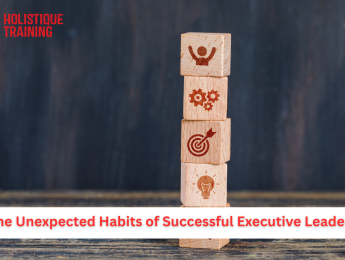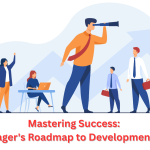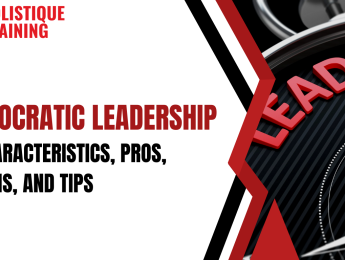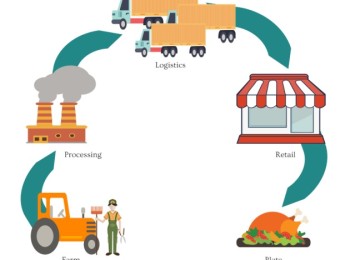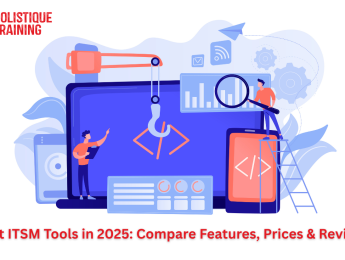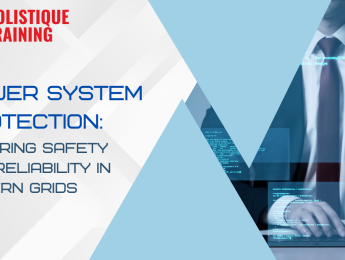- Table of Contents
- Introduction:
- 2. The Myth vs. Reality of Leadership Habits
- Why Habits Matter More Than Talent
- The Power of Subtle Daily Behaviors
- The Unexpected Habits of Successful Executive Leaders
- 1. Embracing Vulnerability
- 2. Prioritizing Sleep and Personal Well-being
- 3. Engaging in Daily Reflection
- 4. Delegating with Trust, Not Control
- 5. Lifelong Learning as a Leadership Tool
- 6. Practicing Mindfulness and Mental Clarity
- 7. Welcoming Constructive Dissent
- 8. Demonstrating Humility in Power
- 9. Scheduling “Think Time” Without Meetings
- 10. Regularly Practicing Gratitude
- 11. Taking Walking Meetings
- 12. Protecting “No-Tech” Zones or Hours
- Conclusion
Introduction
The archetype of a successful executive leader often conjures images of relentless work ethics, unwavering confidence, and authoritative decision-making. These leaders are perceived as individuals who burn the midnight oil, make swift decisions, and maintain an unyielding grip on their organizations. However, this traditional portrayal may overlook the nuanced behaviors and subtle habits that truly distinguish exceptional leaders from their peers.
In an era characterized by rapid technological advancements, globalization, and evolving workforce dynamics, the demands on executive leaders have transformed. Success is no longer solely determined by strategic acumen or financial prowess; it also hinges on adaptability, emotional intelligence, and the ability to foster innovation. Consequently, understanding the less conspicuous habits that underpin effective leadership becomes imperative.
This article delves into the unexpected habits that successful executive leaders cultivate. By examining these practices, we aim to shed light on the behaviors that, while not always highlighted in leadership manuals, play a pivotal role in navigating the complexities of modern organizational landscapes.
The Myth vs. Reality of Leadership Habits
Common perceptions about executive leaders often emphasize traits such as working around the clock, exercising absolute control, and making unilateral decisions. However, empirical studies and real-world observations suggest a more intricate picture.
A study by Harvard Business Review revealed that effective CEOs are not necessarily the most charismatic or domineering individuals. Instead, they excel in areas like decision-making, adaptability, and relationship-building . This challenges the notion that relentless work hours and authoritative control are the sole drivers of executive success.
Myth | Reality |
Executives work 24/7 without rest | Successful leaders prioritize rest and strategic downtime |
Effective leadership requires micromanagement | Empowering teams leads to better outcomes |
Decisiveness equates to immediate decisions | Thoughtful deliberation often results in more effective choices |
Constant multitasking enhances productivity | Focused attention on key tasks yields better results |
Table 1: Common Myths vs. Actual Practices of Successful Executives
Why Habits Matter More Than Talent
While innate talent and intelligence are valuable assets, they are not the sole determinants of sustained success in executive roles. James Clear, in his book " Atomic Habits ," emphasizes that small, consistent habits can lead to remarkable results over time . This perspective aligns with the understanding that deliberate daily practices often outweigh sporadic bursts of brilliance.
Harvard Business Review further supports this notion, highlighting that organizations led by executives who cultivate positive habits and character traits tend to outperform their counterparts. These habits, ranging from effective communication to continuous learning, create a foundation for resilient and adaptive leadership.
In essence, while talent may open doors, it is the cultivation of purposeful habits that enables leaders to navigate challenges, inspire teams, and drive long-term success.
The Power of Subtle Daily Behaviors
The impact of leadership is often attributed to grand strategies and major decisions. However, subtle daily behaviors can significantly influence organizational culture and performance. Practices such as active listening, expressing appreciation, and maintaining approachability foster trust and collaboration within teams.
A study by McKinsey & Company emphasizes that successful CEOs cultivate routines that infuse discipline into their daily schedules, allowing them to perform at their best. These routines, while seemingly minor, contribute to a leader's ability to stay focused, make informed decisions, and maintain emotional equilibrium.
Recognizing and adopting these subtle behaviors can enhance a leader's effectiveness, creating a positive ripple effect throughout the organization.
The Unexpected Habits of Successful Executive Leaders
When we think of executive leaders, we often picture individuals with bold personalities, assertive communication styles, and a laser focus on performance and results. However, many of the world’s most effective leaders attribute their long-term success not to the typical high-pressure traits, but to less conventional, often surprising habits. These habits—while subtle—build resilience, trust, innovation, and mental clarity over time.
Below, we explore eight unexpected habits practiced by highly successful executive leaders, each backed by leadership research and expert analysis.
1. Embracing Vulnerability
Far from being a weakness, vulnerability is a leadership strength that fosters authenticity and psychological safety. Successful leaders openly acknowledge their limitations and invite feedback from their teams. This transparency builds trust and encourages others to take ownership of their roles without fear of judgment.
Example: Satya Nadella, CEO of Microsoft, transformed the company culture by encouraging empathy, curiosity, and open communication—an approach rooted in vulnerability and active listening.
2. Prioritizing Sleep and Personal Well-being
Many assume that executive leaders thrive on limited sleep and constant hustle. In reality, leaders who value high-quality rest and overall wellness tend to perform better. Rested leaders make clearer decisions, regulate emotions more effectively, and exhibit better interpersonal skills.
3. Engaging in Daily Reflection
Top leaders often set aside time daily or weekly to reflect on decisions, interactions, and areas of improvement. This deliberate practice helps them avoid reactive decision-making, learn from failures, and grow over time.
Tools Used: Journaling, silent contemplation, or structured “end-of-day reviews” are popular formats for executive reflection.
4. Delegating with Trust, Not Control
Instead of micromanaging, effective executives empower others to lead within their areas of expertise. They delegate tasks clearly, communicate expectations, and trust their teams to deliver. This creates room for strategic focus and talent development.
Data Insight: A study by Harvard Business Review found that CEOs who practiced “empowered delegation” had 33% more productive teams and higher organizational engagement scores.
5. Lifelong Learning as a Leadership Tool
Successful leaders are committed to continuous learning, whether through reading, mentoring, online courses, or engaging in cross-industry conversations. They don’t rely solely on past experience—they adapt to change by constantly evolving their knowledge base.
Real-World Example: Bill Gates reads 50 books a year and dedicates time to deep thinking and thematic learning, despite decades of success.
6. Practicing Mindfulness and Mental Clarity
Mindfulness allows leaders to reduce stress, focus on priorities, and lead with intention. Whether through meditation, breathing exercises, or mindful planning, these habits help leaders stay composed under pressure.
7. Welcoming Constructive Dissent
Great leaders are not surrounded by "yes-men." They actively invite differing viewpoints, ask critical questions, and encourage teams to challenge decisions with evidence. This culture of debate leads to innovation and prevents major oversight.
In Practice: Netflix’s leadership openly encourages employees to challenge strategies in meetings—a habit that has led to disruptive innovation and transparent communication across all levels.
8. Demonstrating Humility in Power
Contrary to the idea that leaders must always project strength and dominance, humility is often their most powerful tool. Humble leaders admit mistakes, recognize the contributions of others, and remain open to learning.
9. Scheduling “Think Time” Without Meetings
High-performing executives often reserve blocks of uninterrupted time in their calendars—not for meetings or tasks, but purely for thinking. This habit allows them to step back from day-to-day operations and focus on big-picture strategies, anticipate market changes, or develop creative solutions to complex problems.
Example: Jeff Weiner, former CEO of LinkedIn, famously scheduled 90 to 120 minutes of “buffer time” every day just to think, plan, and process information without distractions.
10. Regularly Practicing Gratitude
Many successful leaders keep a gratitude journal or take time to express appreciation to their team. This practice not only boosts their personal outlook but also strengthens workplace morale and employee retention. Gratitude reduces stress, improves emotional resilience, and fosters a culture of recognition.
11. Taking Walking Meetings
Instead of sitting in formal boardrooms, some executives prefer walking meetings—discussing business while moving outdoors or around the office campus. This approach promotes physical activity, sparks creativity, and breaks down hierarchy between participants, making conversations more open and spontaneous.
In Practice: Steve Jobs and Mark Zuckerberg have been known to conduct walking meetings, citing benefits for focus, energy, and engagement.
12. Protecting “No-Tech” Zones or Hours
In an always-connected world, successful leaders often define specific hours or zones (like during meals, early mornings, or family time) as tech-free. This habit helps maintain work-life balance, improves attention span, and strengthens relationships both at home and at work.
Table: Summary of 12 Unexpected Executive Habits
Habit | Core Benefit |
|---|---|
Embracing Vulnerability | Builds trust and psychological safety |
Prioritizing Sleep and Well-being | Enhances decision-making and emotional clarity |
Daily Reflection | Encourages learning and self-correction |
Effective Delegation | Strengthens team trust and productivity |
Lifelong Learning | Drives innovation and adaptability |
Practicing Mindfulness | Reduces stress and improves focus |
Encouraging Dissent | Enhances decision-making through diverse input |
Demonstrating Humility | Builds loyalty and authentic leadership |
Scheduling Think Time | Supports creativity and strategic clarity |
Practicing Gratitude | Boosts morale and emotional intelligence |
Taking Walking Meetings | Improves engagement and mental energy |
Setting No-Tech Hours | Reinforces focus and work-life balance |
These habits may appear simple or even contrary to traditional beliefs, but they reflect the evolving demands of executive leadership in the 21st century. Leaders who integrate these into their routine not only enhance their own performance but also create healthier, more innovative, and more adaptable organizations.
Conclusion
The journey to executive success is multifaceted, encompassing more than just strategic prowess and authoritative presence. As we've explored, unexpected habits—ranging from embracing vulnerability to practicing mindfulness—play a crucial role in shaping effective leadership.
By integrating these subtle yet impactful behaviors into their daily routines, leaders can foster environments of trust, innovation, and resilience. These habits not only enhance personal effectiveness but also contribute to the broader success and adaptability of their organizations.
For those aspiring to elevate their leadership capabilities, reflecting on and adopting these practices can be a transformative step. To continue exploring insights into effective leadership and personal development, subscribe to our newsletter and join a community committed to excellence and growth.


